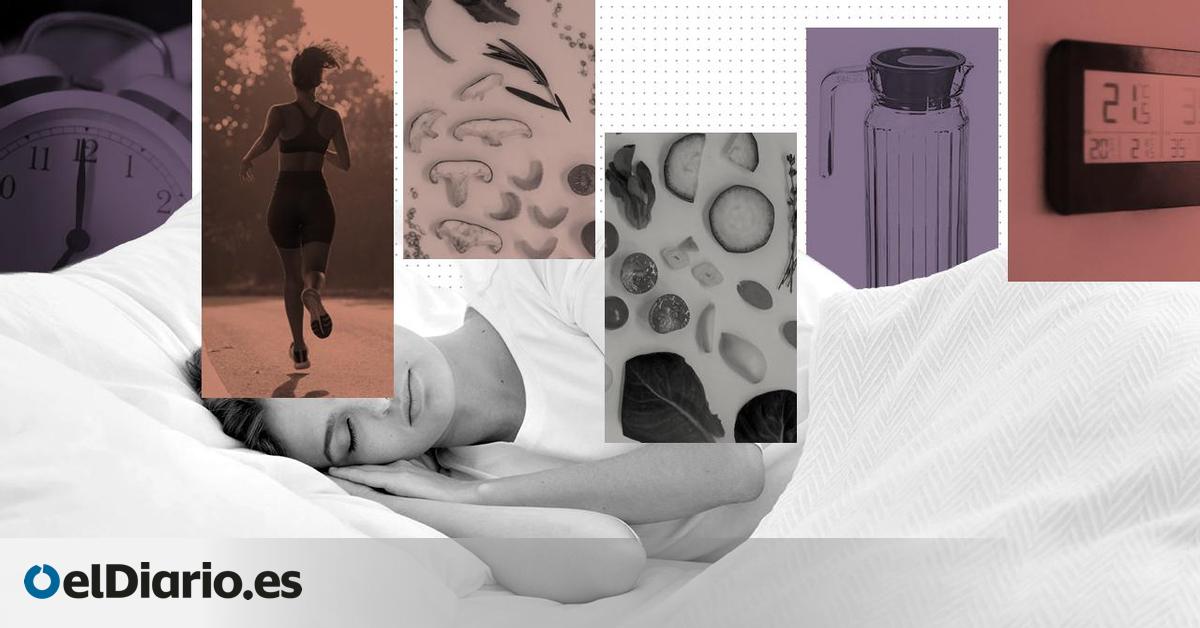
When was the last time you stared at the ceiling doing nothing? That’s impossible when you have a screen in front of you. There’s always something to do, whether it’s a pending job or a social network, series, or video game video that requires your attention. There is no rest in the world, and logically one of the first casualties of this accelerated life is our rest.
For many people, nights of deep, restful rest seem like a distant memory, replaced by hours of tossing and turning in bed, or worse, staring at your phone as your head spins. Understanding what’s wrong with your rest is the first step to restoring it.
The coronavirus pandemic has become a large-scale experiment in the health effects of anxiety and poor sleep quality. An extensive analysis of medical students in Latin America revealed that an astonishing 62.2% suffer from poor sleep quality due to stress and anxiety.
In addition to stress, our sleep is affected by other factors that are closely related to mood and rhythm dysregulation. On the other hand, exposure to artificial light, such as bright fluorescent lights or light from screens, suppresses the sleep hormone melatonin. On the other hand, ingesting stimulants such as caffeine or substances such as alcohol alters the natural structure of sleep, even hours after ingestion.
Although we have little or no control over the factors that affect our sleep, such as various illnesses, medications, and even genetics, we often have control over both our environment and our behavior when we sleep. This is exactly what sleep hygiene is all about.
sleep hygiene keys
Dr. Miguel Ángel Sánchez, a psychiatrist who specializes in sleep disorders, says it’s important to make an important distinction. “Sleep hygiene measures are not a cure and are not effective for insomnia. People who are having poor sleep quality and want to take better care of their sleep should improve their sleep hygiene if they haven’t already done so before seeing a professional.”
If you feel like your sleep is getting worse and want to take better care of it, you should improve your sleep hygiene before seeing a professional.
Miguel Angel Sanchez
— Psychiatrist specializing in sleep disorders
What are these measures? Below is a summary of the most important ones backed by the American Sleep Foundation and Harvard University.
One of the best ways to train your body to sleep better is to go to bed and wake up at about the same time every day, even on weekends and holidays. This regular rhythm makes us feel good and synchronizes our brain’s internal clock so that we feel sleepy at the appropriate time. Research agrees that regularity is important for sleep quality.
A morning walk is a great way to start your day, as exposure to sunlight synchronizes your circadian clock. Additionally, research shows that strength exercise and, to a lesser extent, aerobic exercise, contribute to improved sleep quality. It must be remembered that strenuous exercise is not recommended in the 4 hours before bedtime.
- Avoid caffeine, nicotine, and other stimulants
It is recommended that you avoid consuming caffeine (found in coffee, tea, colas, energy drinks, and to a lesser extent chocolate and some medications) or nicotine (from cigarettes and e-cigarettes) for at least 4 to 6 hours before bed. These substances act as stimulants in the brain and interfere with your ability to fall asleep.
Many believe that alcohol is not a stimulant, on the contrary, it has a relaxing effect and helps you fall asleep. This can happen at the beginning of the night, but it actually disturbs your night’s sleep and affects its quality.
You should try to use your bed only for sleep and sex so your brain associates it with sleep. When we use our bed as a place to watch TV, eat, read, work on our laptops, pay bills, etc., our brains associate it with a state of activation.
Short naps can be beneficial, but after 20 or 30 minutes you start to run the risk of disrupting your night’s sleep. It’s best to keep naps short, don’t go too late during the day, and set an alarm clock.
Your body needs to lower its internal temperature by 1-2 degrees in order to sleep, so very high heat in your bedroom can disrupt your sleep. A seemingly contradictory idea is to take a hot bath or shower 1-2 hours before bed. This is because it instantly raises the surface temperature of your body, and when the temperature drops, it induces sleepiness.
A large dinner or excessive intake of fat or sugar can interfere with sleep, but when it comes to food, the moment you eat it is even more important. Going to bed on an empty stomach puts your digestion in an activated state, and low blood sugar levels can disrupt your sleep. On the other hand, drinking a glass of warm milk, which contains tryptophan, can help promote sleep.
It is very important that the bed and bedroom are quiet and free of noise, that the mattress and pillows are comfortable, and that the room is cool but not cold. If you can’t avoid light or noise, you can improve your sleep quality by using earplugs or a mask.
Are some sleep hygiene measures more effective than others? For Dr. Angeles Martinez, a neurophysiologist who specializes in sleep disorders, schedules are essential. “Having a routine or habit is key to sleep,” he says. “It’s good to go to bed when you’re already sleepy, but what you can’t tolerate is a wake-up time that should always be the same. Any disruption to mealtimes can also be a nuisance,” he added.
It’s okay to go to bed even though you’re sleepy, but what you can’t forgive is waking up at the same time every time.
Angeles Martinez
— Neurophysiologist specializing in sleep disorders
Dr. Sanchez agrees with the importance of regularity in your schedule, but adds an element of relaxation as part of the whole thing. “Relax for a few hours before bed without doing any stressful activities, and eat dinner at least two to three hours before bed (ideally four hours).”
Although sleep hygiene measures improve rest, it is worth remembering that sleep disorders cannot be cured by these measures and require the intervention of a medical professional, especially a sleep specialist. Dr. Sanchez lists some simple keys to recognizing the possibility of illness. “There are three groups of symptoms to talk about: either because you’re not getting enough sleep or sleeping too little, or because you’re sleeping too much and falling asleep during the day, or because your sleep patterns have changed.” Another factor is that these symptoms persist over time. “If you have a few nights of sleep deprivation, there is no need to go to the doctor, especially if you are in a stressful situation,” the expert added.
Dario Pescador is editor and director. Quo Magazine and the author of the book your best self.



